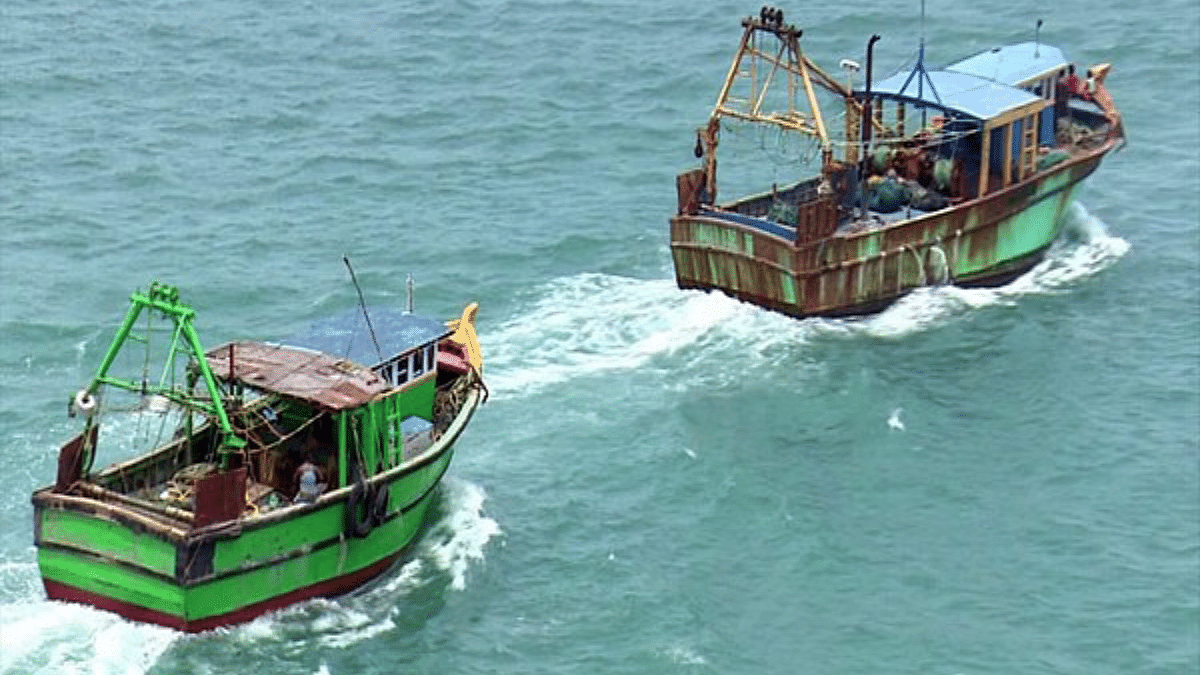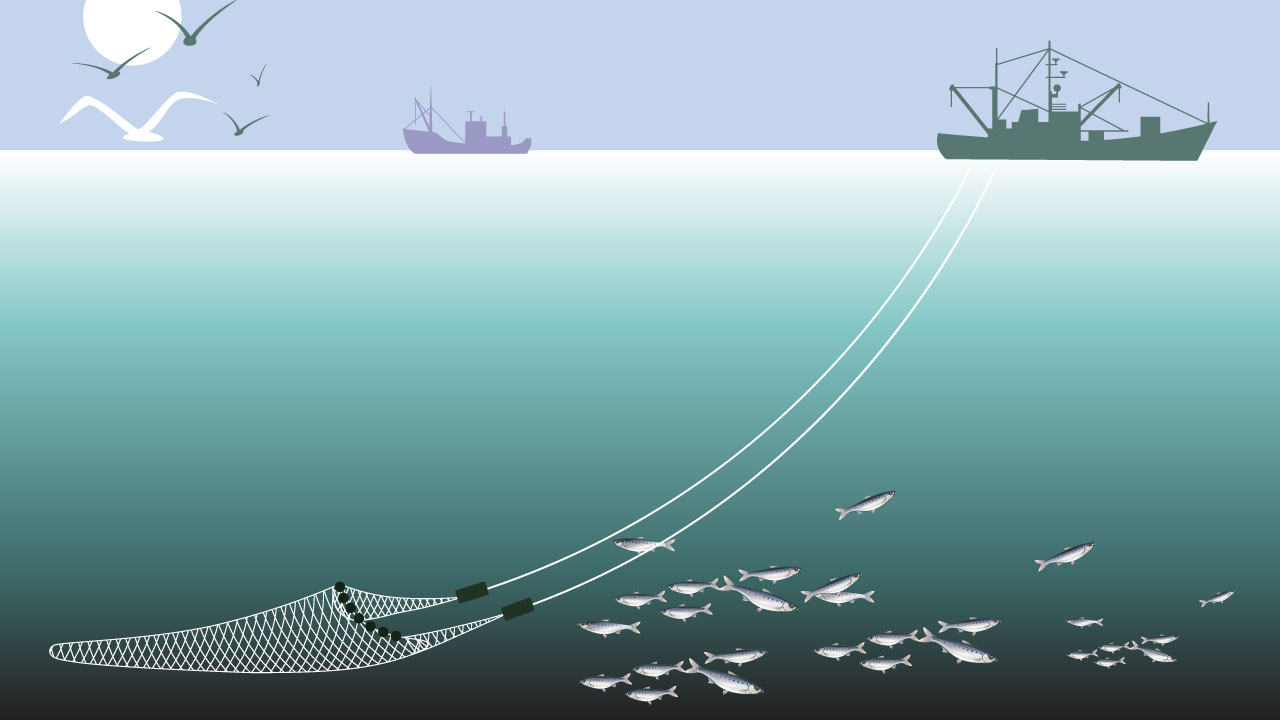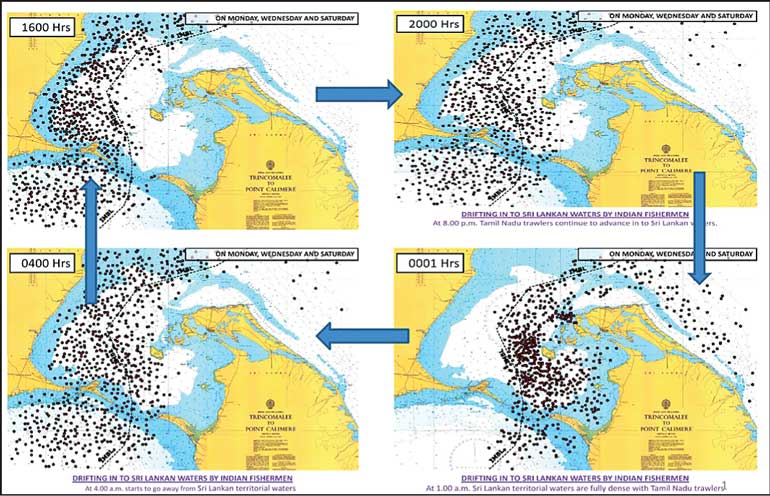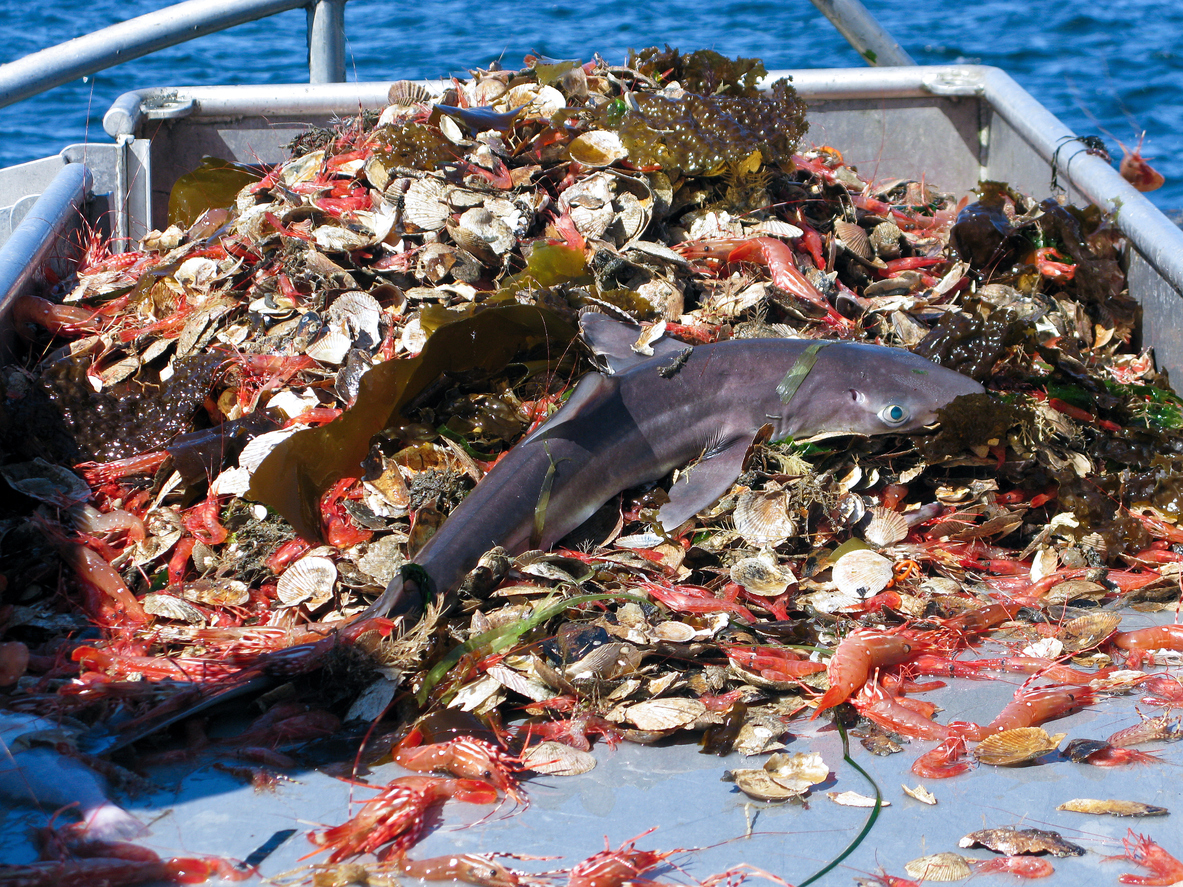The ongoing fishing dispute in the Palk Strait is not a simple diplomatic skirmish but a direct result of the Indian government’s longstanding failure to regulate its own fishing industry-a failure that has inflicted severe damage on both the marine ecosystem and the livelihoods of Sri Lankan fishermen.
The root cause lies in India’s continued use of illegal and destructive fishing methods, especially bottom trawling, by Indian fishermen who routinely cross into Sri Lankan waters, devastating local fisheries and threatening Sri Lanka’s sovereignty.
Origins of the Crisis: Indian Policy and Environmental Destruction
The crisis traces back to the 1960s, when, following an economic downturn, the Indian government distributed mechanized trawlers and destructive fishing gear to its fishermen in an attempt to boost fish harvests.
These bottom trawlers scrape the seabed, destroying juvenile fish and larvae, which not only decimated fish stocks in Indian waters but also caused irreversible harm to the marine ecosystem.
Despite the environmental devastation and the collapse of their own marine resources, the Indian government-both at the state and federal levels-has failed to ban these destructive fishing practices and invest in programs to restore fish stocks in Indian waters.
Instead, Indian authorities routinely protest the arrest of their fishermen by the Sri Lankan Navy, deflecting responsibility rather than addressing the root cause of the crisis.
Sri Lankan Fishermen:Victims of Cross-Border Exploitation
Sri Lankan fishermen, particularly those in the war-affected Northern Province, are the primary victims of this cross-border exploitation.
Indian trawlers not only deplete Sri Lanka’s fish stocks but also destroy local fishing gear and threaten the livelihoods of traditional Sri Lankan fishing communities.
Reports of Indian fishermen damaging or destroying Sri Lankan nets are common, and compensation is rarely provided. The aggressive expansion of Indian fishing, driven by capitalist interests and political patronage, has left Sri Lankan fishermen unable to compete or sustain their way of life.
Sri Lanka’s Rightful Enforcement and Sovereignty
Given these circumstances, the actions of the Sri Lankan Navy in arresting Indian fishermen and seizing their boats are entirely justified. Sri Lanka has every right to enforce its maritime laws and protect its sovereign resources from illegal exploitation.
The Sri Lankan government has repeatedly urged India to prosecute repeat offenders and provide alternative livelihoods to its fishermen, but Indian enforcement remains inconsistent and ineffective.
As a result, Sri Lanka has intensified patrols and legal action, making it clear that violators will be treated as offenders under Sri Lankan law.
Political Manipulation in Tamil Nadu
Indian state of Tamil Nadu's political establishment, rather than seeking solutions, have exploited the dispute for electoral gain, stoking anti-Sri Lankan sentiment and deflecting blame from their own government’s failures.
This political posturing ignores the real victims-Sri Lankan fishermen-and perpetuates a cycle of hostility and environmental destruction.
A Call for Accountability
The solution to the Indo-Lanka fishing dispute lies not in diplomatic protests or political theatrics but in India’s willingness to take responsibility:
- Ban destructive fishing methods, especially bottom trawling, in Indian waters.
- Launch programs to restore and sustainably manage fish stocks in Indian territory.
- Deploy Indian authorities to prevent illegal crossings into Sri Lankan waters.
- Support Sri Lankan efforts to protect their maritime resources and respect their sovereignty.
Until these steps are taken, Sri Lanka’s firm enforcement of its laws remains both necessary and justified to safeguard its environment, economy, and sovereignty.
Environmental Catastrophe Unfolding
Bottom trawling not only leads to the collapse of fish populations but also destroys coral reefs and the delicate marine habitats that are vital for the regeneration of fish stocks.
Marine scientists warn that if these practices continue unchecked, the Palk Strait could face an ecological collapse that would take generations to recover from, affecting biodiversity across the region.
Economic Fallout for Coastal Communities
For Sri Lankan fishing communities, the economic fallout is devastating. Many families rely solely on fishing for their livelihoods.
With Indian trawlers sweeping up the catch and destroying nets, Sri Lankan fishermen face declining incomes, mounting debts, and increasing hardship. The loss of traditional fishing grounds has forced some to abandon their ancestral profession, leading to social dislocation and increased poverty in coastal villages.
Diplomatic Strains and Regional Stability
The dispute has become a persistent thorn in India-Sri Lanka relations. While diplomatic channels remain open, progress is hindered by India’s reluctance to address the root causes.
Sri Lanka has repeatedly emphasized that the issue is not just about illegal fishing, but about the right to protect its natural resources and the well-being of its citizens. Continued inaction by India risks escalating tensions and undermining regional stability in South Asia.
International Law and Maritime Rights
Sri Lanka’s actions are firmly grounded in international law. The United Nations Convention on the Law of the Sea (UNCLOS) grants coastal states the right to manage and conserve resources within their Exclusive Economic Zones (EEZ). By enforcing these rights, Sri Lanka is upholding both its national interests and its obligations as a responsible member of the international community.
The Indo-Lanka fishing dispute is a test of political will and environmental stewardship.
The world is watching to see whether India will rise to the challenge, take responsibility for its actions, and work with Sri Lanka to restore harmony to the Palk Strait. Until then, Sri Lanka’s unwavering enforcement of its maritime laws remains a justified and necessary defense of its people, its resources, and its sovereignty.




Comments
Post a Comment